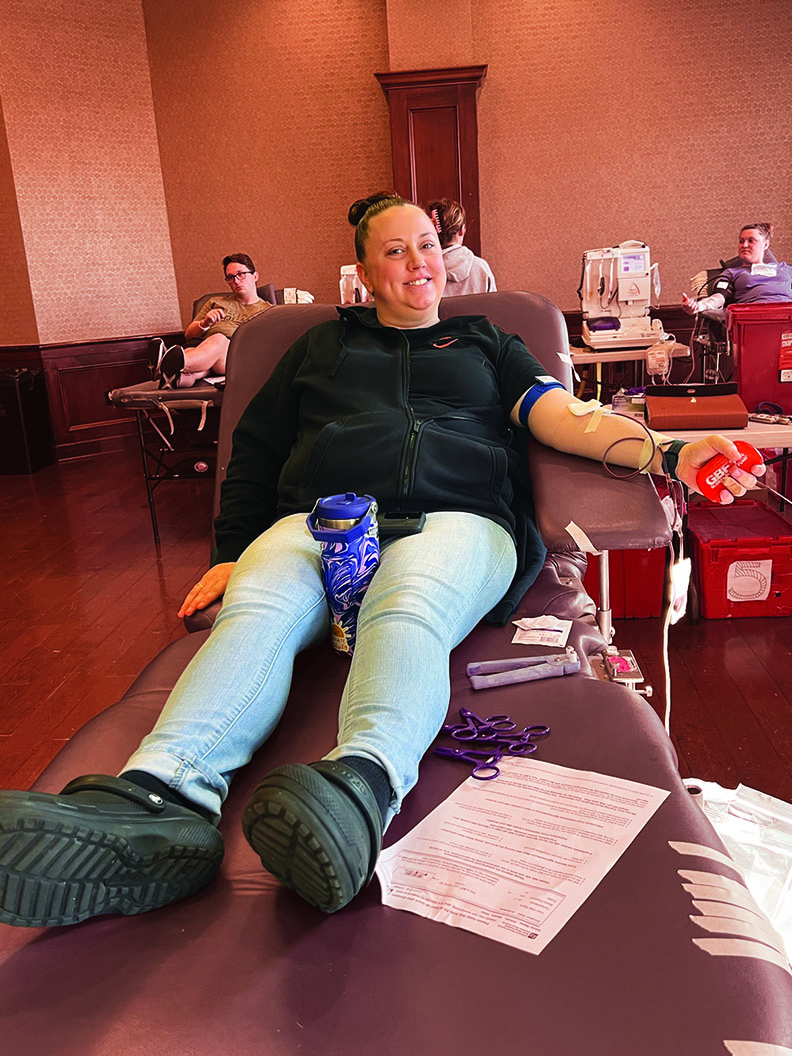By: Amanda Purser
Every two seconds, someone in the United States needs blood. In light of the current emergency blood shortage across the state of Oklahoma, the recent blood drive that Cameron hosted with Our Blood Institute was more crucial than ever.
It was great to see so many people participating in a cause that is so vital. Blood donation is a small sacrifice that can have a major impact on society. I personally made sure to donate blood during the event, as this cause is meaningful to me, for several reasons.
I know firsthand the importance of having blood supply available for unexpected situations as I found myself in an emergency cesarean surgery during my first childbirth. More than thirteen years ago, I was in labor for the first time ever. I was 24 years old, excited, anxious, and incredibly nervous for the changes to come in my life.
After more than twenty-six hours of labor with minor complications, my doctor made the decision to take me back for a cesarean (or C-section). Thankfully my baby was successfully delivered, but the situation turned emergent within seconds of her leaving my abdomen.
My exhausted body couldn’t function properly to stop the hemorrhaging from the operation, so my physician—thankfully a former combat surgeon—had to manage the situation before I bled out on the operating table. It wasn’t only his quick actions and medical experience that preserved my life that day. I credit the four units of blood I received during my transfusion as the true life-saving measure.
Had that blood not been available to me, I would never have been able to hold my baby girl or gone on to have two more beautiful daughters in the years to come. My young life would have been lost to a preventable outcome, if I didn’t have that donor blood to replenish what I lost during my surgical procedure.
My story is not unique. There are accidents, surgeries, medical treatments, and traumas that occur every few seconds, which require blood or plasma to treat or remedy.
Blood substitutes have been studied and researched since the early 1600’s, or arguably as long as humans have been capable of bleeding to death.
To date, there is no viable substitute for blood, according to the National Center for Biotechnology Information (NCBI), and the National Institute of Health (NIH). The role of blood in the human body is so complex and serves a variety of functions rendering scientists unable to appropriately replicate the product.
While some synthetic alternatives exist in medicine, their functions are designed to mimic only a singular part of the overall process. Thus, many artificial substitutes are needed to fully replace blood products for humans, which isn’t always feasible or effective. Time is of the essence during an emergency, so replacing a person’s lost or toxic blood is most efficient when done by another real human’s blood.
Blood and plasma donations from eligible contributors are the best way to keep the ample supply needed on shelves around the country. There are some health benefits for donors as well, according to the American Red Cross.
In addition to the humanitarian aspect, regularly donating blood can reduce hemoglobin and iron build up, which is linked to high blood pressure and cardiovascular complications.
Donors also get a free mini-physical during the health screening, to determine eligibility.
If you have donated in the past or are a regular repeat donor, thank you for your sacrifice.
Knowing that one donation can save up to three lives, and that there is no better medical alternative is reason for most people to roll up a sleeve and give a pint.
Please consider reaching out to OBI to schedule your next donation today or find out more about what you can do to save a life.
For more information, contact Our Blood Institute at (580) 350-6100.

